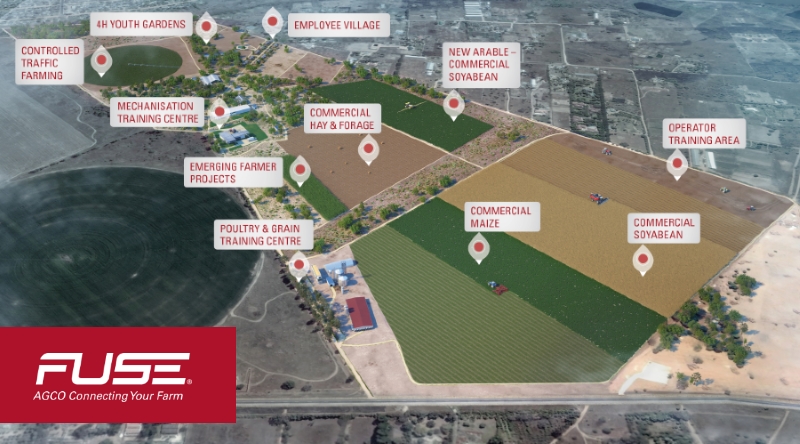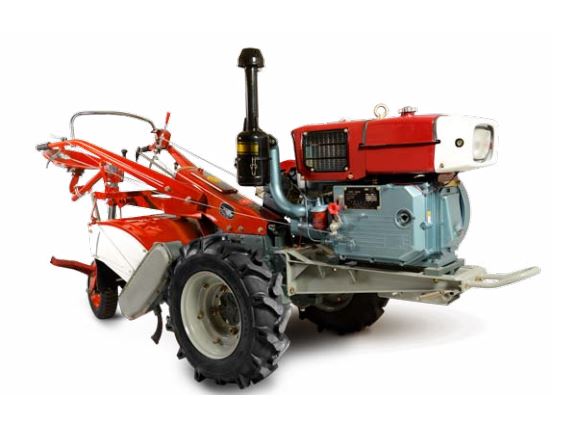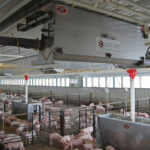Precision Farming Technologies Work for Small-Scale Operations, Too
Hello Tractor has been able to leverage connectivity to create, essentially, the Uber of farm equipment in Africa. The system allows growers to offset the initial cost of their equipment, making it more feasible for small-scale farmers in Africa to own their own tractors.

Precision Farming Technologies Work for Small-Scale Operations, Too
Hello Tractor has been able to leverage connectivity to create, essentially, the Uber of farm equipment in Africa. The system allows growers to offset the initial cost of their equipment, making it more feasible for small-scale farmers in Africa to own their own tractors.As precision agriculture matures on its growth trajectory towards becoming a roughly $11 billion industry by 2025, innovative applications of existing technologies are now cropping up left and right. When we think of precision farming, mental images of large-scale, multi-machine farm operations likely come to mind, along with widely adopted products like automatic guidance, telemetry, rate and section control, and so forth. However, one company in Africa has been able to leverage connectivity to create, essentially, the Uber of farm equipment.
Hello Tractor designed a small-scale tractor that would be economical, yet still meet the needs of the typical farmer in Nigeria and similar countries. These three-wheel tractors have considerably less horsepower than tractors used in more developed areas of the world, and they are considered “smart tractors”, as they are equipped with GPS technology and the ability to monitor maintenance intervals, making management easier for owners.
Nearby farmers who have a need for a tractor can send a text message to Hello Tractor describing the service they need, as well as send an electronic payment. From here, the company identifies a tractor owner closest to the farmer needing a machine, and they are able to provide the tractor. Once the task has been completed, the payment is then released to the tractor owner. Additionally, notifications are sent to the owner as their machine reaches usage milestones, indicating to the owner which maintenance is required to optimize their uptime.
By driving down the cost per use of farm machinery, more farmers are able to access equipment to maximize their productivity and meet ideal timelines for each stage of the crop cycle, thus optimizing their yield. This system also allows tractor owners to offset the initial cost of their equipment, making it more feasible for small-scale farmers in Africa to own their own tractors.
Precision farming is a critical part of the solution in meeting our population’s mounting demand for food and fiber. It is becoming more evident that its suitability reaches far beyond the commercial producers many once believed these technologies were tailored for. Hello Tractor is just one of many use cases proving that technology is able to effectively connect farmers with solutions that can optimize their operation, regardless of size or scale.
Overall, this business model works toward the ultimate goal of feeding the growing population, by addressing the fact that only 40% of Nigeria’s arable land is currently being cultivated—a contributing factor to their need to import a majority of their food.
While operating under a different business model, but toward the same end goal of feeding the world, AGCO also strives to increase efficiency and productivity of every operation, large or small. As mentioned by Matt Rushing in a recent blog post, farmers in Africa have a unique opportunity to leapfrog their manual practices and trade them in for a data-driven approach to the entire crop cycle, allowing them to make better decisions in regard to their operation.
Written by Jennifer Parillo
Jennifer Parillo is a marketing specialist for the global Fuse team. Learn more about AGCO’s precision farming technology solutions by visiting www.AGCOcorp.com/Fuse.




